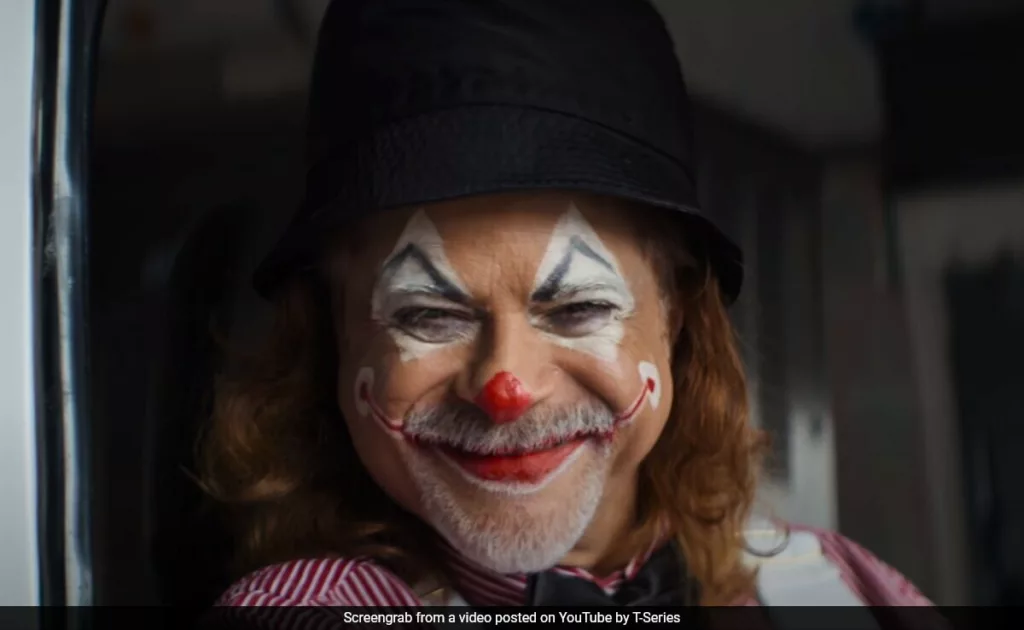A gender-reversed, Indian mythology-inspired adaptation of the jailbreak thriller The Next Three Days (2010), which was in turn a remake of the French film Pour Elle (Anything for Her, 2008), Savi huffs and puffs its way through the tale of a homemaker who fights tooth and nail to get her murder convict-husband out of a high-security Liverpool prison.
In terms of its technical attributes, Savi lacks nothing. Cinematographer Chinmay Salaskar and editor Shan Mohammed lend the film sustained gloss and pace. Director Abhinay Deo, working with an adapted screenplay by Parveez Shaikh and Aseem Arora, does more than his bit and adds a shiny veneer to the film.
It is at the plot level that Savi is found wanting. It is undone by a slew of cliches. All the polish that is visible in Savi is strictly on the surface. The flourish and sparkle inherent in the making cannot offset the vacuity at the film’s core.
As the story of an ordinary woman determined to give her husband a new lease of life because she believes he is a victim of a miscarriage of justice – the film is a modern-day take on the myth of Savitri and Satyavan – Savi fails to deliver a punch or two that can catch the audience by surprise.
The story unfolds at an even pace but is never able break away from a monotonous loop. The performances by Divya Khossla, who has a role that allows her ample room to demonstrate her emotive prowess, and Harshvardhan Rane, saddled with a character with limited space and scope, are earnest but rudimentary.
The two actors have very big shoes – those of Vincent Lindon and Diane Kruger (of the French original) and Russell Crowe and Elizabeth Banks (of the American adaptation directed by Paul Haggis) – to fill. A tall order. Not that they do not try, but owing to the slapdash plotting and erratic writing, there is a limit to how much they can rustle up by way of a salvage operation.
As a much-in-love couple thrown into a deep crisis when an Indian construction industry employee is accused of bludgeoning his foul-tempered female boss to death with a fire extinguisher, Rane and Khosla Kular have to shoulder the entire weight of the film. It is not until Anil Kapoor appears on the scene that they have some help and Savi perks up a little.
Nakul Sachdev (Rane) pleads innocence but is handed a 12-year prison term. Left to fend for their son Adi, Savi Sachdev (Khossla), with assistance from Joydeep Paul (Anil Kapoor), a reclusive ex-convict who lives alone in a mansion in the woods with a pit bull for company and writes books about his multiple escapes from jail, hatches a daring plan to free her husband.
Inside the prison, Nakul has run afoul of a group of inmates who run a drug ring. Nakul survives a murderous attack. On his complaint, the assailants are placed in solitary confinement for a month. The action gathers momentum when the vicious hoodlums are three days away from being let loose again. For Savi, it’s now a race against time.
The urgency of her mission never quite hits home because none of Savi’s actions bears the ring of desperation that you would expect from the moves of a woman who has her back to the wall. There aren’t too many junctures in the film where one can grasp the mounting severity of Savi’s distress.
On one occasion, she tells her dad (M.K. Raina) on a video call that she will be incommunicado for a few days. On another, she requests a friend to take care of her son in case her return is delayed. That her choices are fraught with risk is as clear as daylight but the protagonist’s actions are trapped in a mechanical loop.
Savi is sucked into the Liverpool underworld, where, as Joydeep Paul warns her, she might have to shoot to kill. She has doubts about her ability to pull the trigger when needed. She isn’t a criminal. But does she have a choice? Things inevitably spin out of control as the heroine traverses down a dangerous path.
In The Next Three days, as also in Anything for Her, it is the wife who is in prison. Here, the husband is who needs to be saved. The onus is on the woman to prove the depth of her love for her man. But wouldn’t it have been far more sensible for her to simply wait for her husband to serve out his jail term or to take recourse to legal means to prove his innocence?
The logic of the basic premise of Savi is not beyond question, even if one were to accept that it isn’t entirely dubious. With the two lead actors left to do everything that they can to hold the film together, it flounders frequently. To make up for the overwhelming glumness that the troubled heroine transmits, Anil Kapoor’s smirking, smooth-talking character is given the responsibility of inject some humour into the film.
He does. But instead of providing comic relief, his wisecracks seem a touch out of sync with the tone of the rest of the tale. To Kapoor’s credit, the veteran actor still manages to be one of the film’s bright spots. Flailing around mostly in the dark, Savi does not have many.

